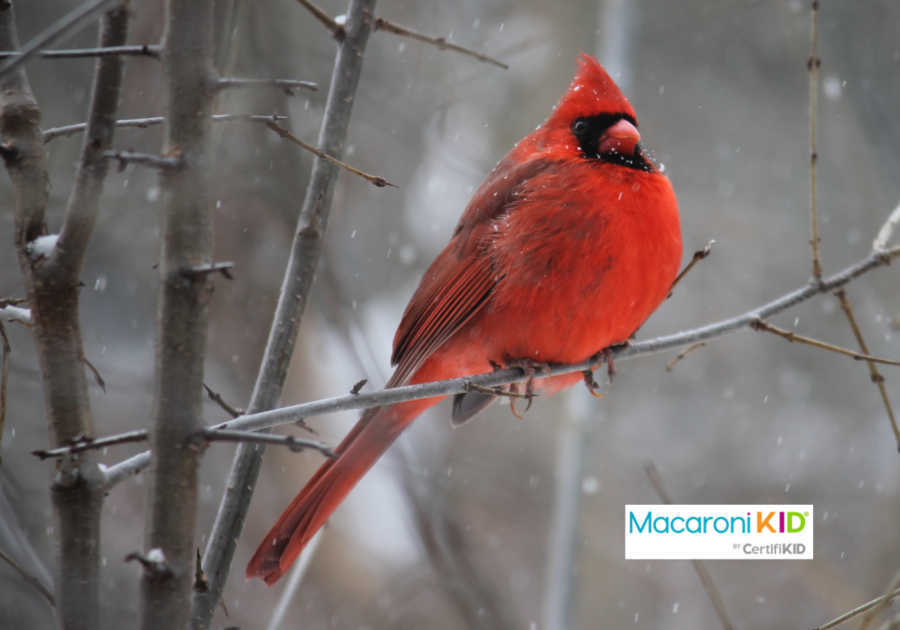With all the windows in the new house bird watching has become a new hobby around here. Having feeders in both the front and back yard has made for an interesting mix of visitors. Of course no feeding area is complete without a bird bath. Among our visitors: Cardinals, blue jays, titmice, sparrows, mourning doves, chickadees, and robins.
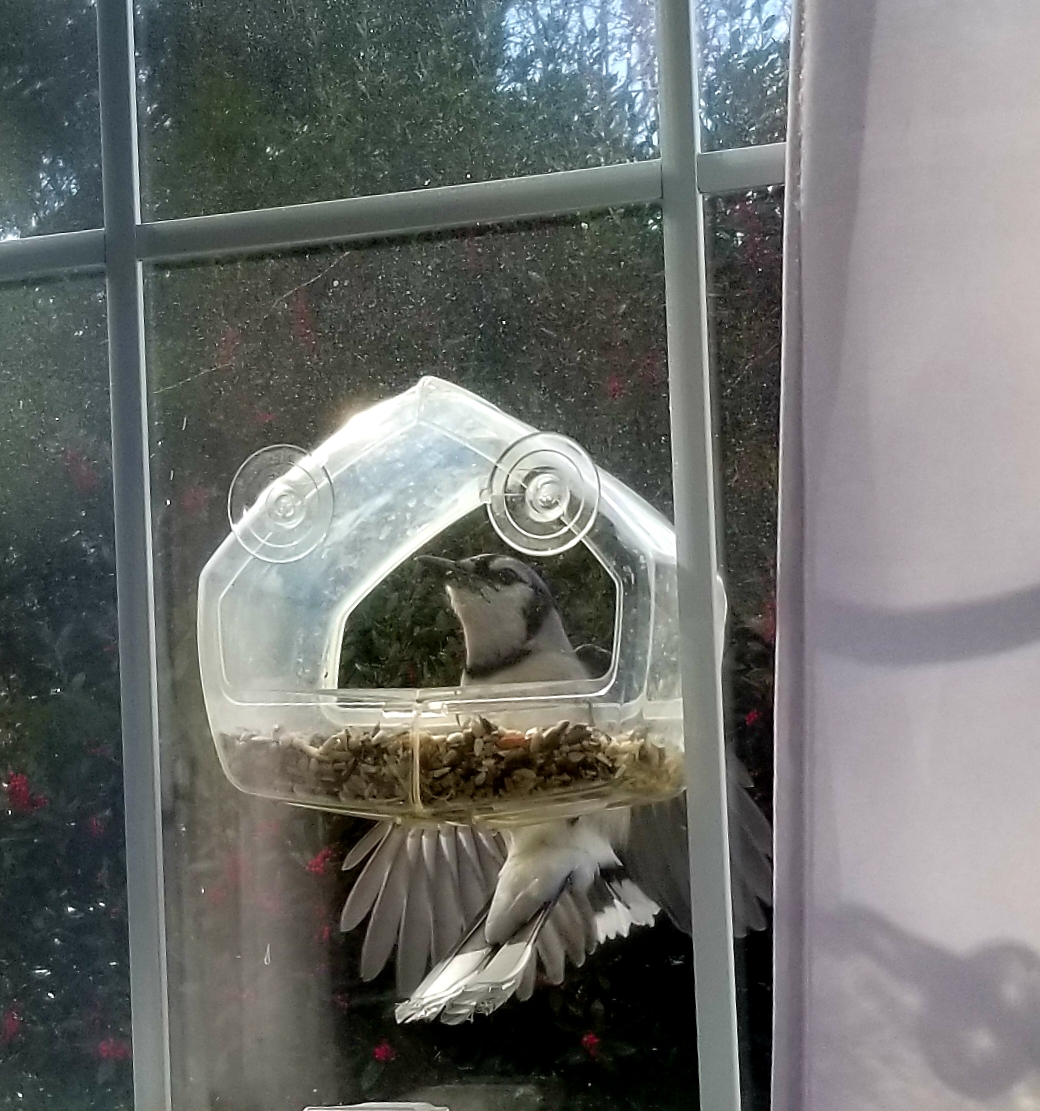 | 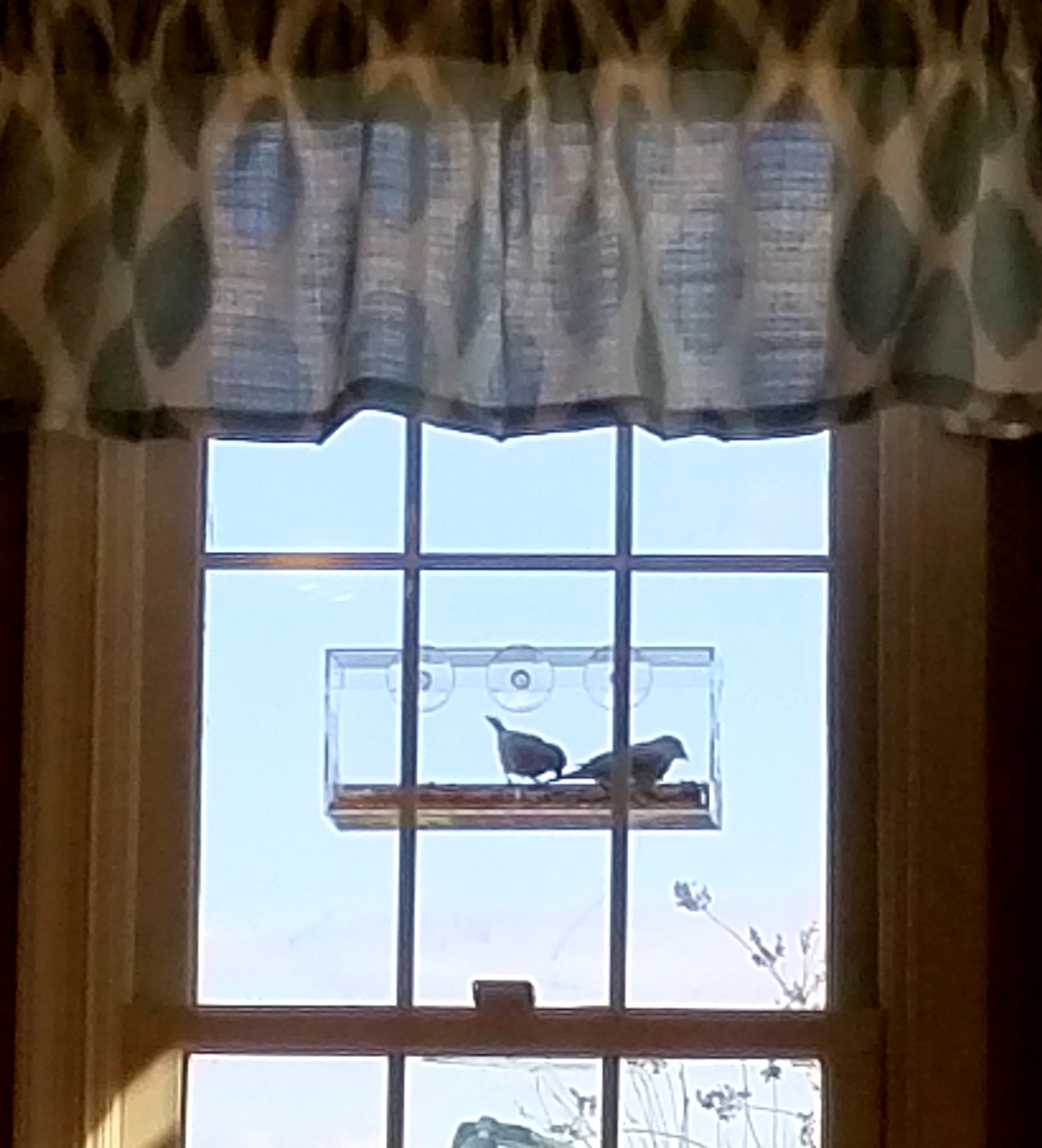 |
Photos by Jenny Sites |
We're looking forward to adding the feathered friends who visit our feeders to the Great Backyard Bird Count, which takes place Feb. 18-21, 2022. The goal of the annual Great Backyard Bird Count, a citizen science project, is to count as many birds as participants can find, and report those findings back to the organizers, which include the Cornell Lab of Ornithology, the National Audubon Society, and Birds Canada.
The observations and reports made by regular backyard bird observers help scientists better understand global bird populations before one of their annual migrations.
Want to participate? It's easy! Here's how:
1. Decide where you will watch birds.
2. Watch birds for 15 minutes or more, at least once over the four days, February 18-21, 2022.
3. Count all the birds you see or hear within your planned time/location and use the best tool for sharing your bird sightings. If you are a beginning bird admirer and new to the count, try using the Merlin Bird ID app. If you have participated in the count before, try eBird Mobile app or enter your bird list on the eBird website.
7 things we've learned by feeding the birds
While we love watching from our windows, we also use birdwatching as a fun way to get outside, get fresh air, and learn something new. It’s a great reason to head to your local park or take a walk around the neighborhood. You can even make it into a competition or scavenger hunt to keep the kids engaged! Who can find the most birds? Who can spy a chickadee first?
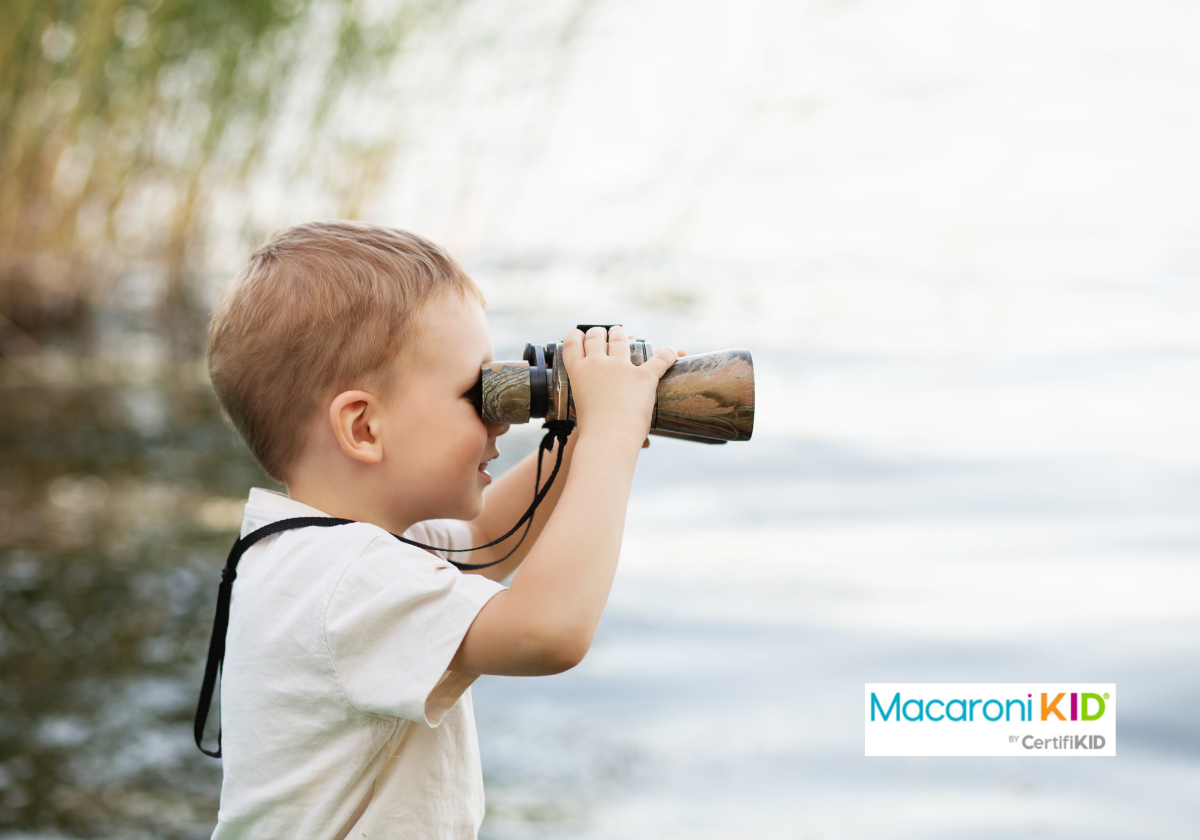 Getty Images Pro via Canva Getty Images Pro via Canva |
Here are seven cool facts we've learned about birds and birdwatching:
- Diurnal (sleep at night) birds typically eat early in the morning and evening.
- Getting different sized bird feeders encourages different types of birds.
- Sunflower seeds are popular with our birds, but make a mess. You can purchase pre-shelled sunflower seeds, but they cost a little more.
- Mealworms seem to be a favorite of all of our birds. We add those to the seed we put out and watch them dig through the seed for the mealworms.
- The chickadee, thrasher, and woodpecker usually choose the bird feeder with dry fruit over the feeder with regular wild bird food.
- No matter how high we put the bird feeders on our windows, the squirrels still try to get food. While we do not mind feeding the squirrels – we actually enjoy watching them too – we do mind them hogging the bird feeders or knocking them down. We have found that squirrels do not like spicy foods, but it does not bother the birds. Adding a little capsaicin or hot peppers to the bird feeder can deter squirrels from taking over the feeders.
- Binoculars add to the bird-watching fun!
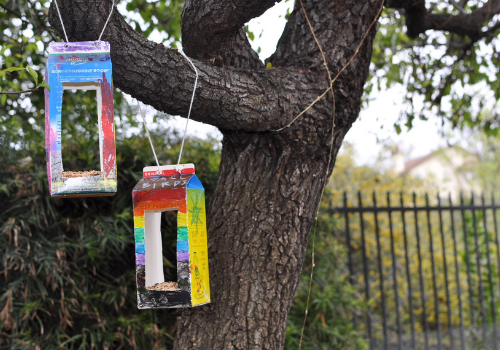 |
Project idea: DIY birdfeeders!
Here are two ideas for DIY birdfeeders kids will love to make:
How to Make Cookie-Cutter Bird Feeders
Recycled Crafts: Kids Will Love to Make This Bird Feeder

